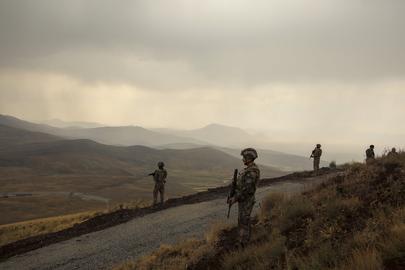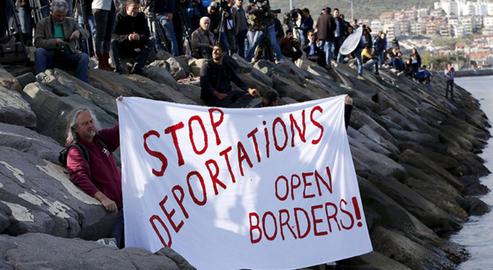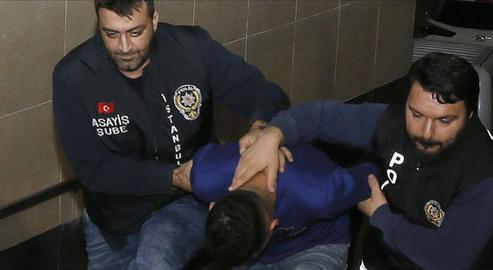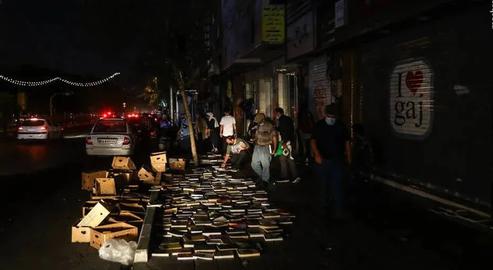Turkey is the way-station for thousands of Iranians every year who leave their country of birth in search of a better life, business opportunities, or greater freedom to live as they choose. Today an estimated 67,000 Iranians live full-time across the border, while the UNHCR’s February 2022 update put the number of Iranian asylum seekers in the country at 24,300. Though Ankara takes a hard stance toward border security, and a string of recent incidents on Turkish soil mean political dissidents in particular remain ill at ease, the country is regarded by many as a comparatively safe haven, and its government as holding a divergent view on global affairs to that of the Islamic Republic. IranWire spoke to Dr. Bilgehan Alagoz, foreign policy coordinator at the Center for Iranian Studies in Ankara and a lecturer at Marmara University, for an overview of Turkey’s stance on some key issues of the day.
How has Ankara responded publicly to Russia's invasion of Ukraine? What factors will be weighing on the Turkish government's official response to the conflict?
The long-established Turkish foreign policy is based on the primary principle of respecting the territorial integrity and sovereignty of countries. Turkey has always stood against changing borders by use of arms, particularly in its neighborhood. This was the main reason Turkey stood against Iran-Iraq war, the Iraqi invasion of Kuwait or the US invasion of Iraq.
In this context, Russia's unjust and unlawful act is unacceptable for Turkey. Turkey pays great attention to relations with both Russia and Ukraine. When the tension is so high, it is necessary to have a country like Turkey that can speak equally to both parties. An ongoing conflict will create instability in Turkey’s environment, and this is not a situation Turkey desires. All these factors motivate Turkey’s official response, which makes its position unique in this catastrophic atmosphere.
What about the Turkish media? Are domestic media outlets more or less in accord on the conflict, or do we see different positions arising?
There are different views on this conflict, as there are different views on many issues in Turkey. However, most of the media and the public believe that Russia’s is an unlawful act. The broadcasters' content reflects this perception. In addition, the support of the opposition media to the current official stance encourages the government to maintain the constructed, balanced policy.
The 2020 Abraham Accords were roundly condemned by top-tier politicians in Iran. But how did Erdogan and the Turkish government react?
The Abraham Accords are not a matter that directly concerns Turkey. This issue is most relevant to the balance of power in the Persian Gulf. Turkey aims to establish good relations with all states in the Persian Gulf. Iran, Iraq and all GCC members are equally crucial for Turkey. There has been a tension between Israel and Turkey for a while, particularly regarding the security of the Eastern Mediterranean. However, both countries have an intention to reducing this tension. In sum, Turkey has a desire to maintain equal and balanced relations with all states in the Middle East as long as they respect Turkey’s national security concerns.
We are again seeing increased levels of migration from Iran to Europe, typically via Turkey, post-pandemic. Could you summarize the Turkish state's current position on how to receive migrants and asylum seekers hailing from Iran and the Middle East?
Turkey has historically been an attraction point for Iranians. Many Iranian intellectuals, scientists, artists, have chosen to live in Turkey. It is noteworthy that there are many Iranians who recently purchased real estate in Turkey. Besides economic motivation, Turkey’s secular democratic system is a notable factor for these people to desire living in Turkey.
Under Turkish legislation, the Directorate General for Migration Management (DGMM) is in charge of all matters related to migration. This unit also handles issues related to immigrants from Iran within the context of the Law on Foreigners and International Protection.
How would you describe the stance of Erdogan's government vis-a-vis Tehran?
Turkey always wants to see Iran in economic and political stability. Therefore, the reconciliation between Iran and the international community is always welcomed. However, from time to time, Iran fails to respect Turkey’s national security sensitivities. It is irrational for Iran to adopt an unfair rhetoric, especially towards Turkey’s legitimate fight against the PKK and all its affiliates, both in Iraq and Syria and cooperation with Azerbaijan in the South Caucasus. As long as Iran respects Turkey’s independent foreign policy and security concerns, Turkey’s cooperation-oriented approach with Iran will continue.
This weekend Iranian diplomats again asserted that a return to the JCPOA - or something like it - was imminent, though the US remained circumspect. What is the Turkish executive's position on the nuclear deal? Is it generally supported or not, and why?
Turkey has always criticized US economic sanctions toward Iran. Therefore, resolving the complicated dispute between Iran and the international community is also Turkey’s desire. If Iran has a desire to become a nuclear threshold state, of course, this concerns not only the USA, but all the countries in the Middle East. As long as it is for peaceful purposes, Iran’s nuclear activities will not be a problem. However, it is necessary to refrain from any attitude that destabilizes the region and increases conflict. Turkey approaches the issue from this perspective.
visit the accountability section
In this section of Iran Wire, you can contact the officials and launch your campaign for various problems



























comments